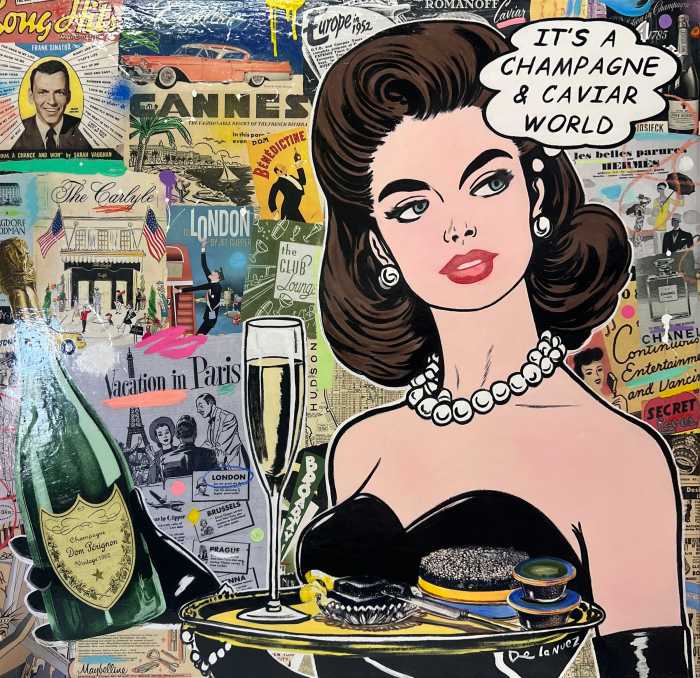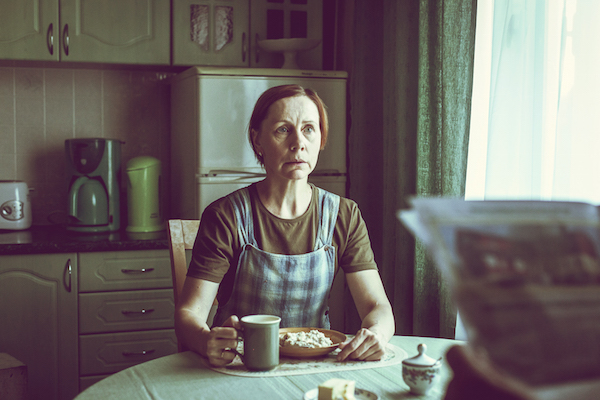
BY RANIA RICHARDSON | A wry whodunit set in a small town in Estonia, “Mother” revolves around the effort to identify who shot a comatose young man, now receiving round-the-clock care from his increasingly resentful mother. As he lies in bed, friends and neighbors visit and unburden themselves with confessions of their private lives. In this cast of characters, someone may know who’s behind the crime — so the prim and dutiful mother, Elsa, listens by the doorway.
The intriguing, well-crafted film examines the interconnected lives of a tightly knit community, to expose the dark side of human nature.
Accomplished Estonian theater actress Tiina Mälberg makes her film debut as the restrained leading lady. The film’s production team consists of a triumvirate of Estonian women: producer/screenwriter Aet Laigu, screenwriter Leana Jalukse, and director Kadri Kõusaar. An undercurrent of feminism girds the film: Elsa yearns for a different life, and even confesses to her inert charge that she never wanted children, and that motherhood at 17 made her dream of studying in Moscow impossible.
Speaking via Skype in London, from the second home she shares with her husband, Kõusaar discussed her career and “Mother,” her third film.
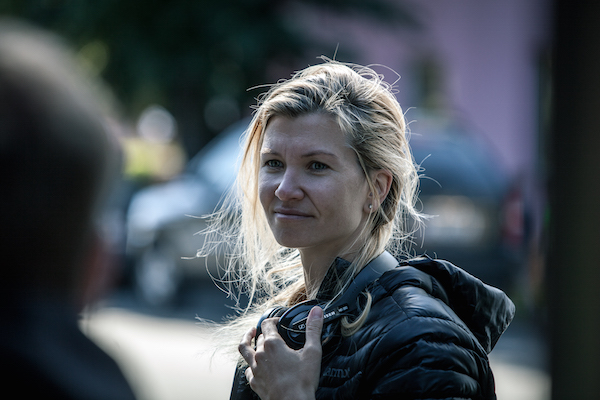
“Elsa has a mask on all the time,” says Kõusaar, lauding Mälberg’s acting. “She is self-sacrificing and does the bulk of the work. I have seen it with my own eyes, with my relatives. The woman is slaving away cleaning, cooking, doing the dishes — and the guy is on the sofa watching TV, with a beer. There has been a generational shift, though.”
The crime is big news in the average town, where a portly constable laments that the biggest transgression on his watch has been a sweater stolen from a clothesline.
Economic hardship is the prevailing theory behind the shooting, as many of the working class characters are struggling: a fiancé with no savings, a best friend facing bankruptcy, a father working beyond retirement age. Drawers are turned upside down to locate the stash of money hidden by the comatose son. Scrimping means that meals are meager, and meat is a special treat — but the picturesque family home is always tidy, and the berry bushes in the garden are fertilized.
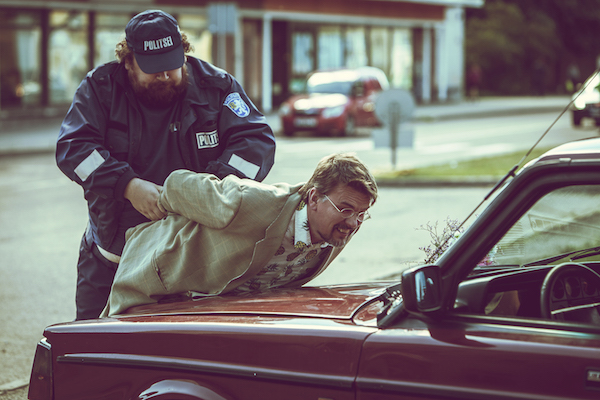
According to Kõusaar, the shooting location in the northeastern part of Estonia was thriving in Soviet times, with oil shale mining a major industry. Environmental concerns curtailed it, however. “My grandparents had a similar house and garden. You had to grow your own potatoes and black and red currants because they weren’t sold. Average folks still suffer, especially in small towns. I don’t think the country is doing that well for a certain segment of society.”
Official reports, though, assert the Estonian economy is growing, and its citizens have a high standard of living. Smaller than the other two Baltic nations (Latvia and Lithuania), Estonia regained independence in 1991, after 50 years of Soviet occupation, and quickly embraced modern advancements with widespread Wi-Fi and an e-government for everything from obtaining a passport to establishing a business. Capital city Tallinn became a tech hub, where the software for Skype was developed.
With a mere 50 miles separating Helsinki from Tallin, it’s no surprise that Finnish director Aki Kaurismäki is an influence on Kõusaar. The sense of timelessness, deadpan humor and bleak reality in “Mother” bring to mind his work. She also admires directors Lars von Trier (whom she calls “a master of psychology”), Pedro Almodovar (the subject of her university thesis), and Jim Jarmusch — himself a disciple of Kaurismäki.
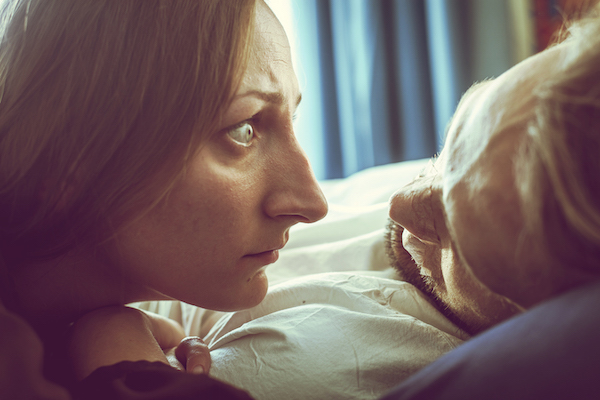
Kõusaar’s first feature, “Magnus,” was screened at Cannes in 2007, when she was 26. Overwhelmed by the crowds at the foremost film festival in the world, she says she felt like “maalt ja hobusega,” literally “from the countryside, and with a horse” — an Estonian expression that roughly translates to “a country bumpkin.”
A successful novelist, Kõusaar was initially afraid of cameras and the technological aspects of filmmaking. A small acting role in Amos Gitai’s 2004 film “Promised Land” (starring Rosamund Pike, who she slightly resembles) gave her an up-close experience with the process, allaying the fears that hinder too many women interested in the business.
“The barriers should be addressed to encourage female filmmakers,” she says. “There is a bias by many producers who smirk or don’t want to do business with you, they just want to flirt. The other issue is biological. When you are having little children and you’re breastfeeding, you don’t want to leave them because of your mothering instinct.”
Kõusaar shot “Mother” last August with an eight-month-old at home, and she credits generous maternity benefits in Estonia — even for freelancers — for its realization. She does not identify with the mother in her film.
“She’s this gray mouse who then becomes a lion,” says Kõusaar of Elsa, who imagines romance and escape to a sunny life in Spain. “She has a craving for a better life.” Fittingly, the movie’s theme song, written by constable actor and Estonian musician Jaan Pehk, is titled “Butterfly.”
Runtime: 89 minutes. In Estonian with English subtitles. Thurs., Apr. 14, 8pm; Sat., Apr. 16 and Fri., Apr. 22, 7:45pm at Regal Cinemas Battery Park (102 North End Ave., at Vesey St.). Mon., Apr. 18, 4pm at Bow Tie Cinemas Chelsea (260 W. 23rd St., btw. Seventh & Eighth Aves.). Visit tribecafilm.com or call 646-502-5296 for tickets ($20 plus $3.50 phone & web processing fee; $10 plus processing for pre-6pm screenings).





